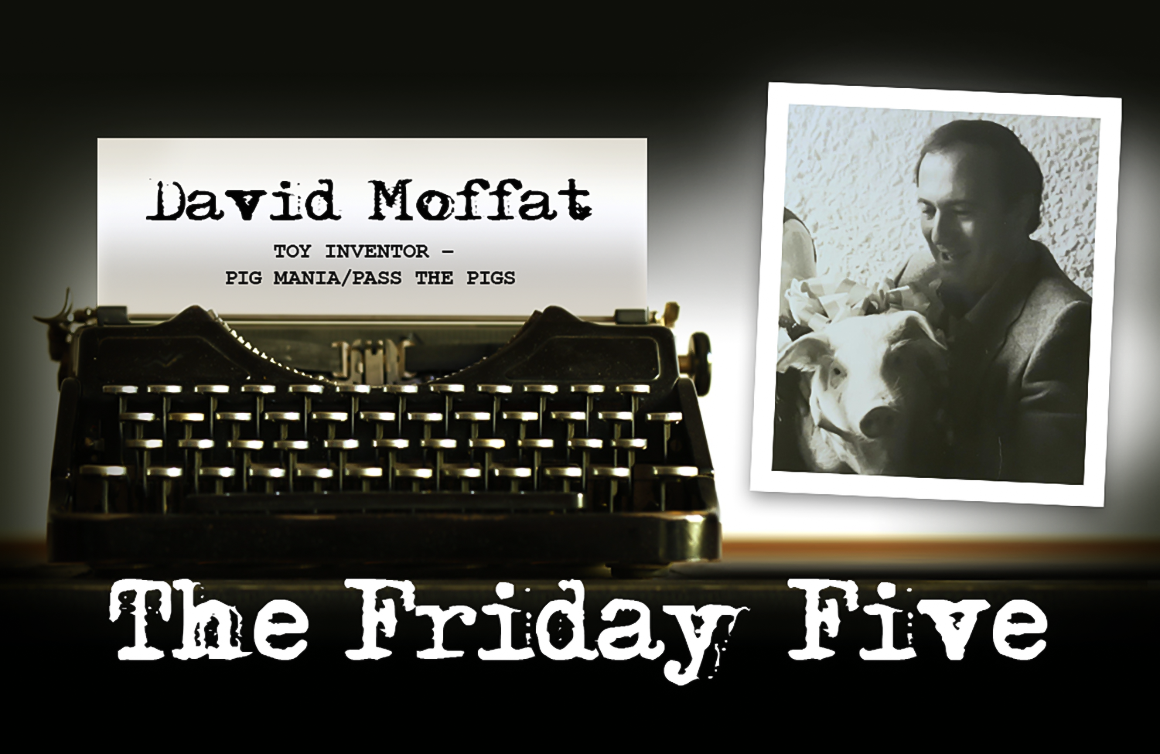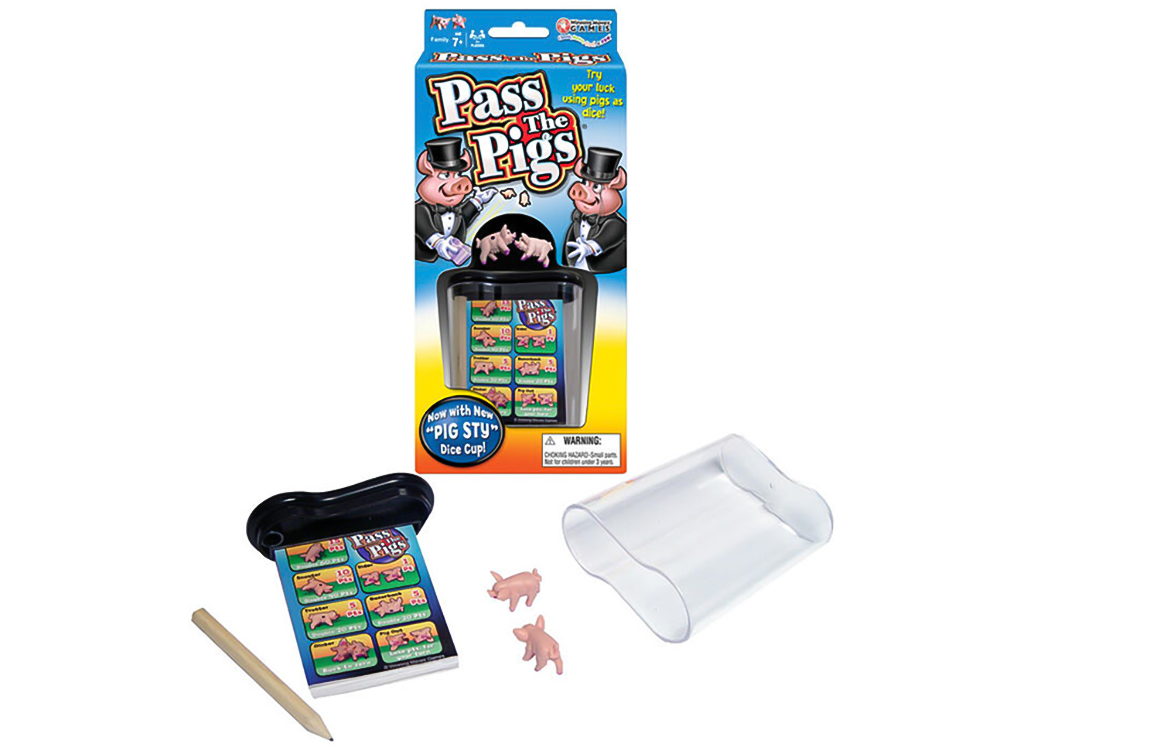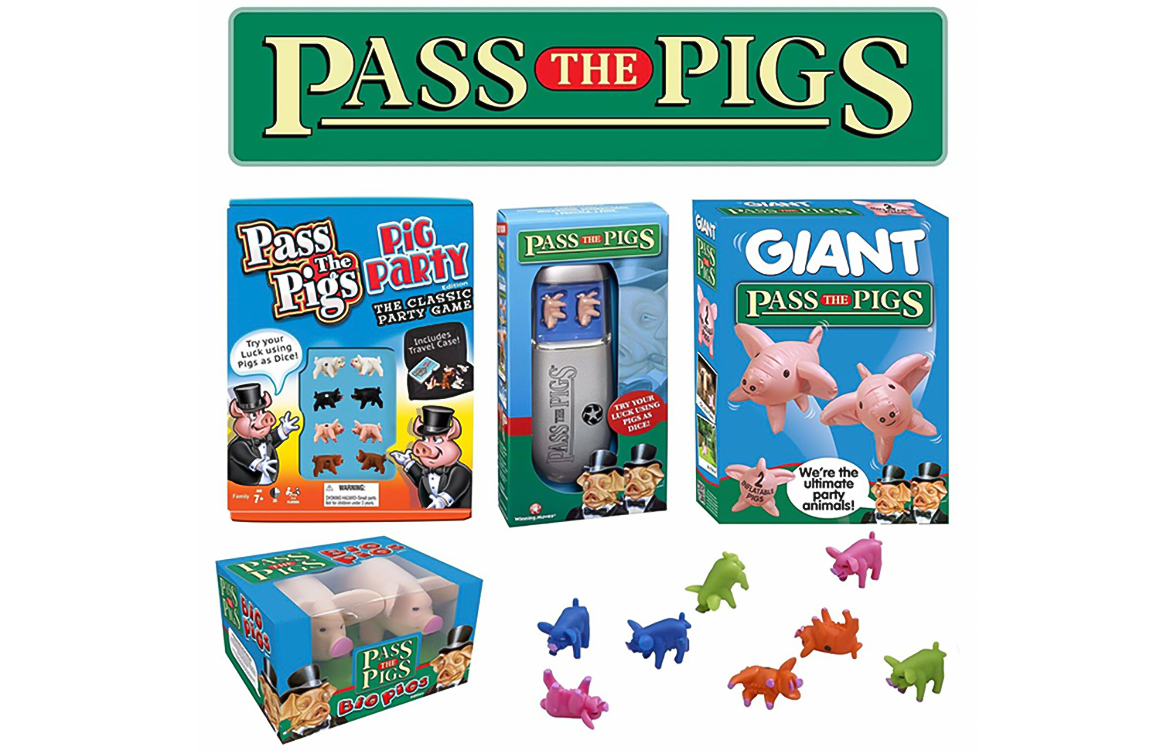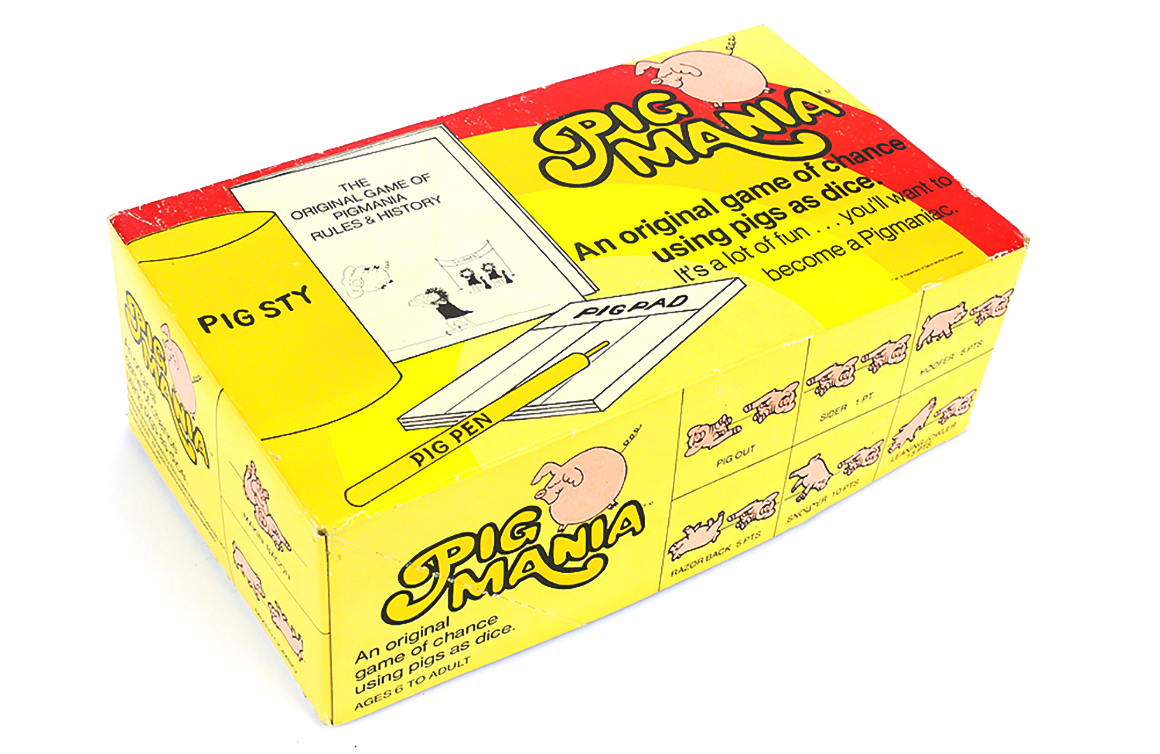Tell us about the seed of inspiration that was planted during a trip to Germany and how that grew into a viable idea for the Pig Mania game.
As I look back, it’s amazing the different steps that eventually lead up to the time I received a small plastic pig from a waitress in Germany.
I went to the University of California, Las Angeles (UCLA). I was having way too much fun partying. My friends and I often went to a little beer bar in Westwood to drink beer martinis – a glass of beer with an olive. We used to see whose olive floated up and down the most times. My school counsellor met with me to tell me that he didn’t think I was serious enough about my studies and suggested I join the military for a few years and then consider returning to school. So, I joined the army.
I had the opportunity to learn a new language at the Defense Language Institute while in the army. I thought it would be a great way to get my language credit out of the way for eventual graduation and maybe do some travelling. I read Hemingway’s The Sun Also Rises in college and dreamed of travelling to Pamplona to experience what Hemingway wrote of. But, living on the west coast, I didn’t think it was realistic. Then I got stationed in Maryland and heard that I could get a military hop over to Europe. I saved my money, flew over to Spain, and watched a running of the bulls. I was hooked and proceeded to save all my money for future travels.
I finished school in the years that followed. Rather than jumping into a career and working until 65 or older, I planned an extended trip throughout Europe. Some friends mentioned an interest in meeting up that summer so I suggested we go to Pamplona for the running of the bulls on the seventh of July – the seventh day of the seventh month – and meet at 7 o’clock. That’s how I started an international club of travellers called 777.
My friends and I landed in Amsterdam and travelled to Munich where we bought an old Volkswagen bug on which we painted our club name, 777. We drove to a mountainside area in Germany called Berchtesgaden, where we learned they would be hiring for a recreation centre and ski resort in December. We travelled to Greece for the next couple of months and met a Danish traveller whom we ultimately had to supply with food, drinks, and blankets while he landed himself in jail for three days after trying to capture a deer that – unbeknownst to him – belonged to the Mayor of the region. He went to court and was ordered to pay a monetary fine or spend more time in jail. He didn’t have much money to begin with. We thought, “let’s go back to Berchtesgaden to see if there are jobs available at the resort”, which we did. We would regularly visit a local restaurant to have dinner and drinks with other travellers. Our waitress, Betty, always carried a little pig in her change purse. It’s called a glücksschwein, which translates to “lucky pig” in English. Betty gave us each a lucky pig, which we proceeded to use like we did the olives in our beer martinis back in California. We popped them into a glass of beer and counted how many times they floated up and down. After taking the pig out of our beer, someone noticed their pig had landed on its back — another one, balancing on his jowl. Eventually, we put two pigs together like dice and realize some positions were more difficult than others. We soon developed a scoring system, according to the difficulty of the positions of the landing pigs. We came up with our little pastime, and no longer floated the pigs in a beer. However, it wasn’t until 10 years later that I thought I had an idea worth marketing.
I came back to the United States and got a job as a ticket agent at the Los Angeles International Airport (LAX). As an employee, I received free first-class tickets to any destination. I returned to Germany for Oktoberfest one year. While there I picked up about 30 plastic lucky pigs from Schleich to bring home. I stuck them in one of my drawers at home in Bakersfield and forgot about them.
In time, I opened a small soup and sandwich place in Bakersfield. I brought out the lucky pigs one day after a customer asked me if I had any dice, which I didn’t. Well, people were really excited about those little plastic pigs and specifically asked for them. They played with them at the table and it was just a fun, silly game. One day, another bar owner came in to ask me about them, wanting to buy some. I lied and said I only had the two. He offered me $5, $10, and then $20 for the pigs. If someone is going to pay that much for those lucky pigs, I wondered if I was on to something. I took them off the bar in case someone had the same notion.
I worked with a friend from my days at UCLA who was now in advertising, another friend from LAX whose wife was a copyright lawyer with The Walt Disney Company, and a friend who was an art director, to develop the concept of the game. We met regularly to play and finalize the rules and create a prototype that became Pig Mania, where players roll two small plastic pigs and earn points based on the positions in which they land.
Sometimes people ask me, “What is the theory behind a good game?”. I don’t know stuff like that. I don’t consider myself a bonafide game inventor.

What was your approach to testing the game throughout the development process?
I put the pigs out on the counter at my restaurant, along with the rules. If someone thought something was too confusing, we re-wrote them.
We were initially afraid to show the game to a company for fear the idea would be ripped off. In due course, we showed the game to the head buyer of a major department store in Los Angeles in 1977. He liked the idea and said he’d place an order when we got it onto the market. We were excited! We had crossed a hurdle but wondered what to do next. The buyer from the department store mentioned us to a contact of his, a vice president of a company that mainly produced greeting cards. They wanted to expand their product line to include games. The vice president met with us and liked our idea for Pig Mania but we couldn’t come to a legal agreement and negotiations broke down.
I left Bakersfield, California to meet my 777 travel group for our final travel adventure. We were in Pamplona, Spain, having a drink in a cantina frequented by Hemmingway when he was alive. The waiter ran over to me saying, “Teléfono! Teléfono!” I thought maybe it was one of our travellers letting me know they can’t make it to the gathering. Instead, it was my lawyer letting me know the greeting card company agreed to our terms and wanted to start work together immediately. That was in July. By October that same year, the game was on the shelves. We gave the department store in Los Angeles a one-month exclusive on it. After that, it was sold all around the United States and a few years later, in Europe.
The game took 17 years to come to fruition; from olives in beer martinis to having the game on the shelf. But, it only took 14 months from the time we decided to finalize the rules, make a prototype, and present the idea to the company in Chicago.

You’re using your experience in the game industry to support new entrepreneurs. In what ways can your experience be applied to other industries?
Well, in a small way. Have you heard of Zihuatanejo, Mexico? It’s about 150 miles north of Acapulco. I helped build a restaurant there for a couple who had to close their original business because the rent became too high. I’ve helped someone buy a boat so they can fish to make some money. I’ve also kind of adopted a Polish family in Ireland where I spend some of my time. I helped them purchase their house so they could stay in the area with their family rather than returning to Poland.
I’m not much for keeping up with the Joneses. In fact, I live in the same house that my father built back in 1956. I spend more money on helping other people than I do on myself.

Are there pitfalls in producing a game that’s become a global phenomenon?
A few years into game production, we did have an unfortunate experience with a group we trusted to accurately report on game sales. We had confidence in that company to not hold down the “little guy”. We filed a judgement against them and took it to arbitration. We settled out of court and took the game back into our own hands.
Things turned out for the better. Shortly after that experience, we signed an agreement with Milton Bradley to produce and distribute Pig Mania. They changed the name of the game from Pig Mania to Pass the Pigs. We thought, “Well, who are we to argue with their marketing people?” We didn’t object to the name change. I bought some Milton Bradley stock. Hasbro eventually purchased Milton Bradley. Winning Moves – which had a close relationship with Hasbro – now publishes the game.

What advice can you share with people who want to develop their own game concepts?
Like my lawyer always said, “Tell people to protect themselves.”
Have someone help you copyright your game so it can’t be stolen. Be careful that you don’t fall into the trap of paying a lot of money to those who promise to take your idea and help you get it to market; you start paying a lot of money and nothing ever happens.
We really had luck on our side the whole way – everything fell into place. When we ran into an obstacle, we were patient. Our first try resulted in, as you said, a global phenomenon.

Watch a video teaser for Pass the Pigs on the Winning Moves YouTube channel.





